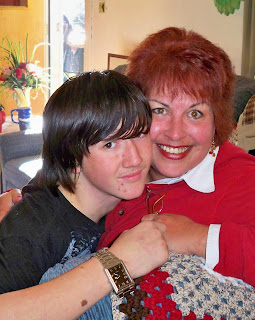~Sia McKye~
 I read a number of blogs. One blog I regularly read is written by an agent. On this particular occasion there was an informal discussion going on between several agents and editors, chatting about a dichotomy between readers and writers. The gist of it was that there were a whole lot of writers out there that weren’t readers. People convinced that they had a “book or two in them,” but they weren't readers. Then there were the writers who felt you shouldn't read other’s work in your genre because it would interfere with your "voice".
I read a number of blogs. One blog I regularly read is written by an agent. On this particular occasion there was an informal discussion going on between several agents and editors, chatting about a dichotomy between readers and writers. The gist of it was that there were a whole lot of writers out there that weren’t readers. People convinced that they had a “book or two in them,” but they weren't readers. Then there were the writers who felt you shouldn't read other’s work in your genre because it would interfere with your "voice".To me, the question has always been how can you effectively write a book if you don't read them? Base it on TV? Your fascinating life? Because you're a professional writer on the job?
I write many things professionally, articles, seminars, notes, and lots of reports. I'm writing something every day and while I don't have the time to read six or more books a week anymore, I do read something everyday. I read for pleasure. I also read to keep an eye out for what is selling, what’s not, styles of writing, and premises used.
I write creatively and have completed two 90k contemporary romance manuscripts of a trilogy and I'm working on a paranormal trilogy. So, I'd say I had “a book or two in me”. I’ve told stories all my life. I come from a very creative family of oral storytellers and published authors.
My love of books came from reading voraciously throughout my life. As a child my parents and grandparents felt to be well read one must read classic literature first. I was also encouraged to branch out and explore various genres, not just one. Consequently, I regularly read various sub-genres of romance, paranormals, suspense and thrillers, and I love Sci-fi. You could say I'm a mood driven reader. I'm the same with music for much of the same reasons--my parents and grandparents.
There is a perception out there that you can't read another’s words when formulating your stories--something nonsensical about copying the voice or premise, yada yada. To me, that's BS. My voice is mine and doesn’t change just because I read someone’s work.
I often think about how coaches train their athletes. It isn't by ignoring the competition. To the contrary, they watch recorded games of the competition so they can be better. Actors know the style of other actors--they watch them. You don't think musicians aren't aware of those who produce the same style of music? Or artists aren't aware of whose style is similar?
As an author, to know what’s marketable you have to read it. Analyze it. That’s keeping your finger on the pulse of market.
I’m a marketing/promotion rep by profession, to sell my products and people; I have to be familiar with what’s out there. Is their product comparable? Better? Worse? How is it packaged? Any book I write is my product and to market it effectively I have to know what’s selling, what my target demographics are and why.
So, you want to be a author? Read. Particularly in your genre. Know what’s selling out there and why.





